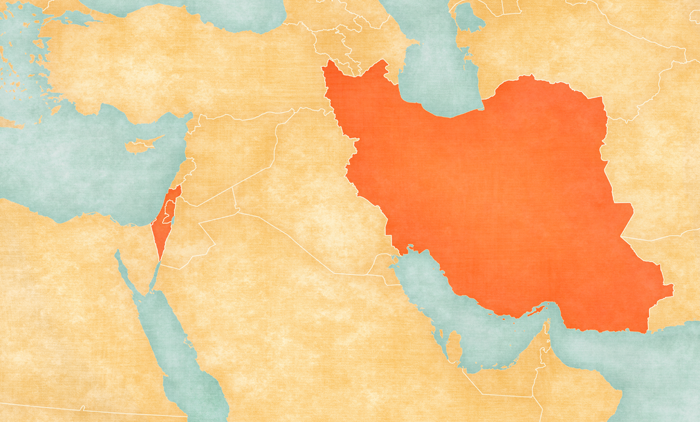Analyses / Middle East / North Africa
13 June 2025
Middle East: The Escalation

Israel’s decision to attack Iran on the night of 13 June is of considerable significance, with harmful consequences not only for the region but also for international relations as a whole.
Two hundred Israeli aircraft involved, around a hundred targets struck: residential districts of Tehran bombed; the head of the Revolutionary Guards, the Chief of Staff, and the Supreme Leader’s security adviser killed in the strikes; the Natanz nuclear site hit. We do not yet have an accurate assessment of the damage caused, but the scale of the attack is clear, and its targets were both military and security-related.
Citing an existential threat to Israel, Benjamin Netanyahu has once again resorted to preventive war, crossing a red line by attacking a nuclear site for the first time. Once again, the Israeli Prime Minister acts outside the bounds of international law, asserting himself as the region’s principal destabilising force.
For several months now, the hubris of Israeli leaders has been obvious, fuelled by a series of successful regional military operations. In October 2024, Benjamin Netanyahu — claiming to embody the “eternal people” — proudly declared that he was waging war on seven simultaneous fronts: Gaza, the West Bank, Lebanon, Iran, Shia armed groups in Iraq and Syria, and Yemen. Yet from his perspective, the main threat remains the Islamic Republic of Iran — a point clearly underscored by last night’s decision.
The Islamic Republic of Iran is compelled to respond, and already around one hundred drones appear to have been launched against Israel. The risk of escalation is now highly likely, and no one can predict with certainty how far it may take the parties involved.
The trap set by Benjamin Netanyahu is extremely dangerous. In recent weeks, differences of assessment between Washington and Tel Aviv have become apparent, and the announcement of negotiations with Iran on 7 April was visibly unwelcome to the Israeli Prime Minister. Five rounds of talks have already taken place, with a sixth scheduled in Oman for Sunday 15 June. It now seems unlikely to go ahead.
Donald Trump cannot afford to distance himself from his Israeli ally and is already mobilising his air defence systems deployed in the region. Drawing the United States into a potential military escalation is precisely what Israeli officials are aiming for.
Moreover, this places Donald Trump in a difficult position with regard to the Arab Gulf monarchies, who are beginning to realise that the security guarantees provided by Washington are ultimately unreliable, given Israel’s apparent ability to dictate the American agenda. Mohamed bin Salman has, in fact, clearly condemned last night’s Israeli attack.
The political decision to increase uranium enrichment to the point of potential military use has not yet been taken by Iranian leaders. However, recent events could push them in that direction, though nothing is certain at this stage. A few diplomatic opportunities still remain, yet Benjamin Netanyahu is methodically seeking to close them off through decisions that dangerously increase regional instability.

